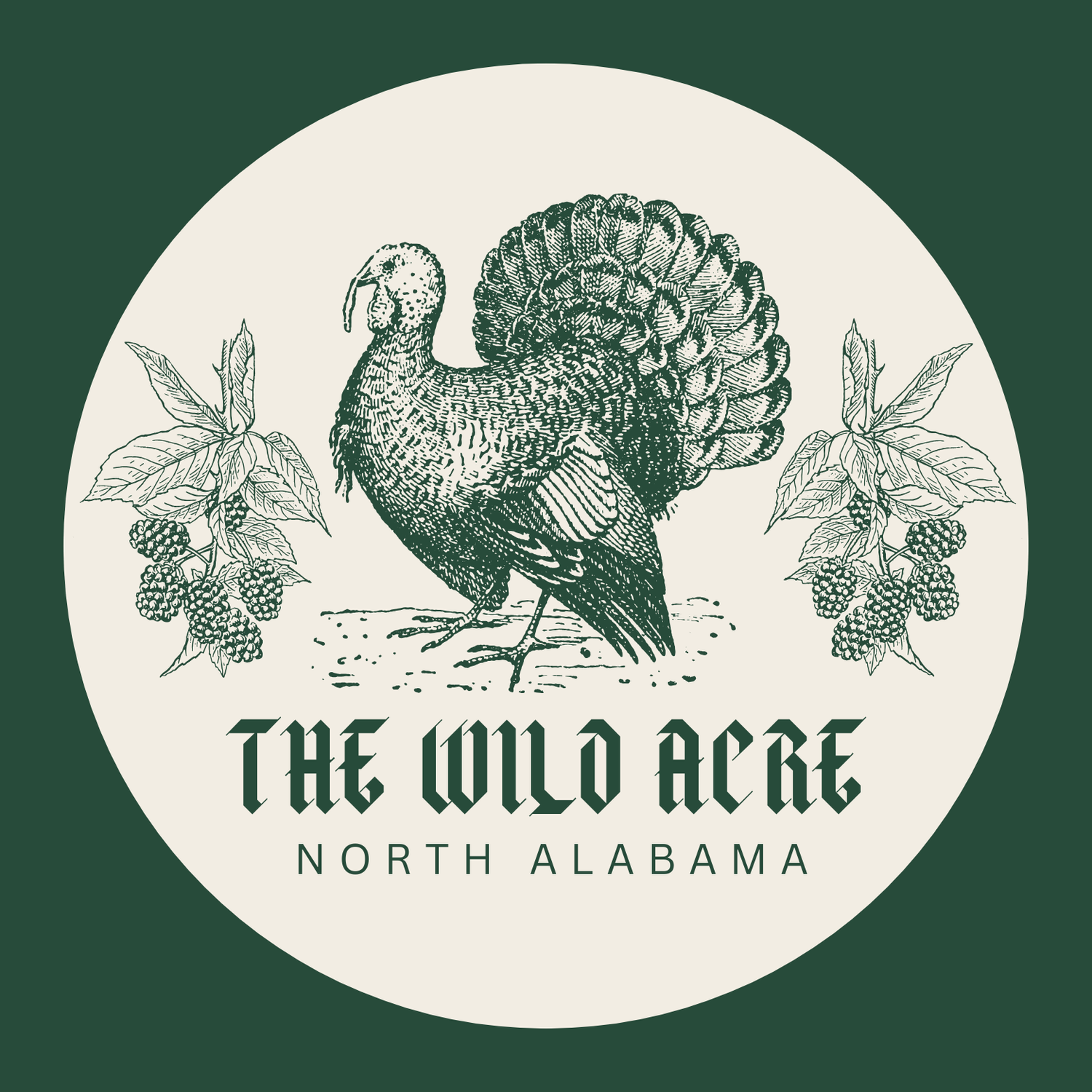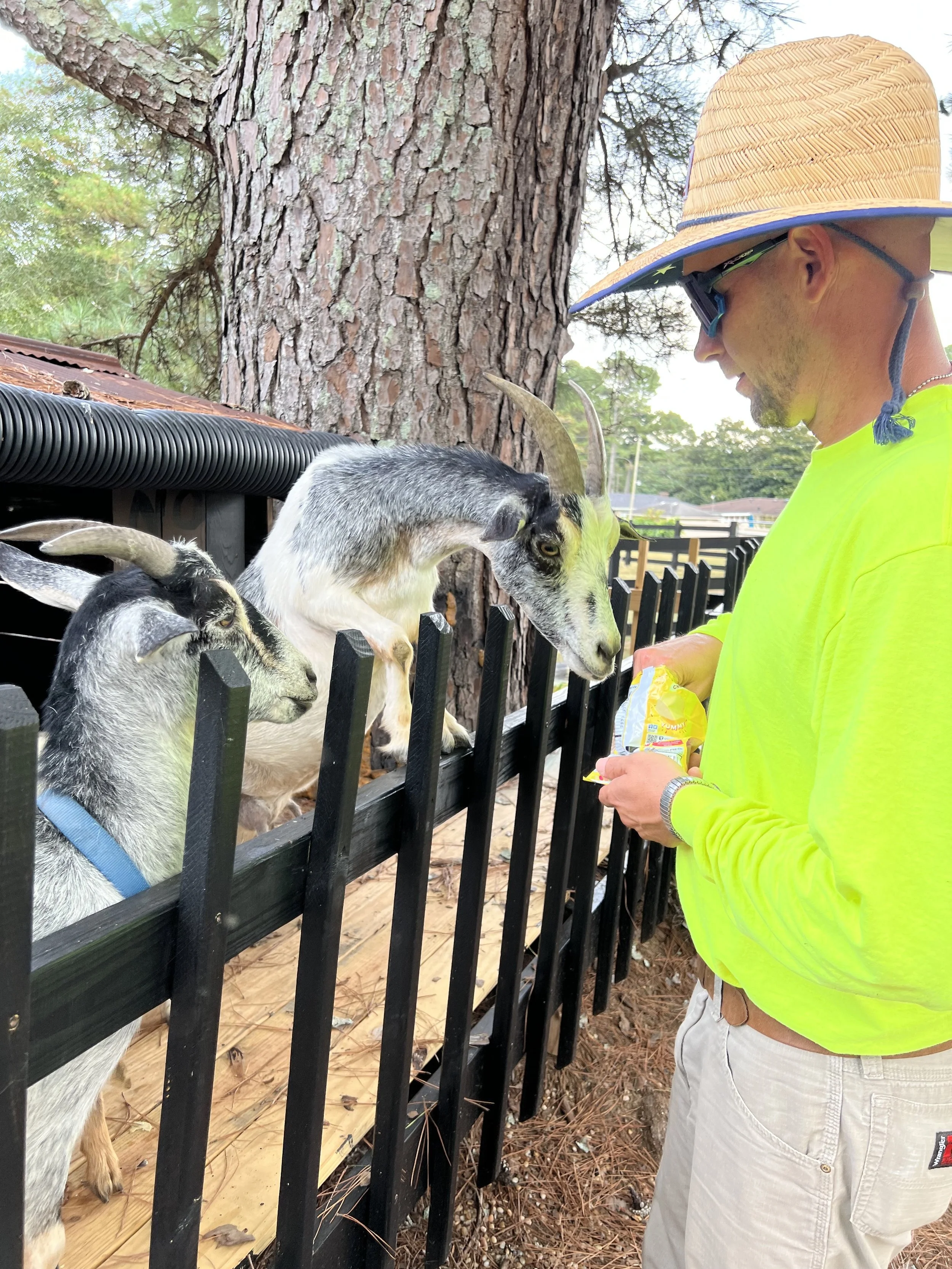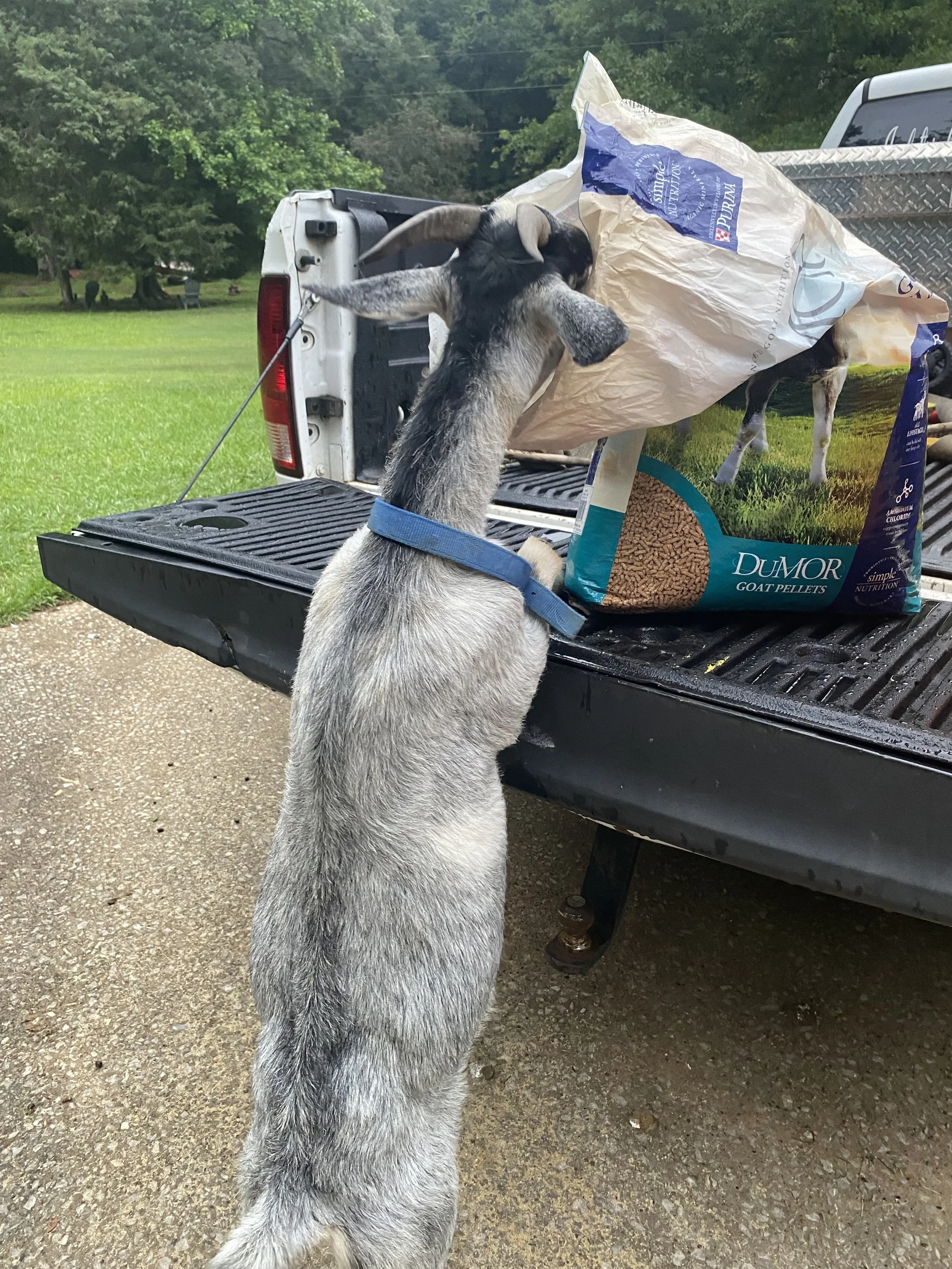Meet Nature's Lawnmowers
Hobby farmer Jared Adams gives his goats a little snack.
Clearing a hillside or acreage for development often requires hiring a team of people with bush hogs, mowers and weed eaters, but one North Alabama hobby farmer is ready to unleash his herd of 16 hardy goats as an initial means of preparing or maintaining land in what he believes can be a cost-saving measure in most cases.
Jared Adams, a metal building erector by trade, uses a sizable portion of his five-acre land in Florence to test the abilities of his Nigerian Dwarf goats. A neighbor has also employed the herd for a successful run at vegetation that needs to be trimmed throughout the year.
“They love to mow grass,” Adams says. “I get up around 5:30 in the morning and let them out to graze in a wooded area. I get their feed and water ready, whistle for them, and they come back.”
Goats love to graze and can be handy at clearing public lands, real estate development property, clearing fields for various purposes, and nimbly munching away grown up hillsides that are difficult for humans and modern equipment to reach.
“You first have to realize that goats, contrary to popular opinion, will not eat just everything," Adams explains. “But they will eat typically 95 to 97 percent of what you may see in most fields or lots. Goats aren’t grazers by nature. They want to stand up to eat brush. While vertical, they release gas. They need to be stretched up, facing up to release it. Grazing, while it will keep them alive, is not what they need to thrive.”
Anyone interested in using goats for clearing land should be aware that their work is not often a one-day affair. They can sometimes take days or even a week, depending on the size of the project and the number of goats needed for the job.
The benefits of nature's land mowers is that they can potentially save money, reduce or eliminate the need for chemicals, and give them a valuable opportunity to do what comes natural to them.
“We were wanting to do something beneficial with the amount of land we have, and goats can have such a great impact with what they do naturally,” Adams notes. “There is more to it than just turning them loose on property, but they do a great job and are efficient in what they do.”
Goat owners who offer land-clearing services learn any plants that are toxic and can explain to landowners what few plants may be left after a herd does its work.
“The expectation is still high for what these goats will accomplish, and for good reason,” Adams explains. “They are one of nature's cleanest methods for getting land reclaimed or shaped up for positive use. We also have two dogs, an older German Shepherd and Red Heeler, who are trained specifically for keeping the goats contained in the area you need to work. They know exactly what to do, so both the goats and the dogs are given a positive purpose in this type of service.”
With five acres of land, Adams was looking for a way to get positive production from his acquisition. This is a relatable goal for many hobby farmers.
“It's not a large farm, and definitely qualifies for what is called a hobby farm. There is a lot that can be done with a smaller acreage, and it's a beautiful setting for our family,” Adams notes. “It's perfect for the goats and family enjoyment. I think it's a great way to make the land productive and provide a sensible and reasonable service for anything from municipalities and real estate developers.”
Notably, Adams has become “TikTok famous” by showcasing his goats and homesteading lifestyle, amassing over 4,000 followers. If you’re active on the platform, you can find him @locowero80.
He can also be found on Facebook or contacted at 256-320-3387 to discuss employing his goat herd for lot clearing in North Alabama.







